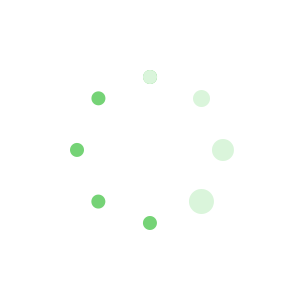一般过去时,现在完成时,过去完成时的用法及区别(通用9篇)
一般过去时,现在完成时,过去完成时的用法及区别 篇1
一般过去时与现在完成时的区别。
一般过去时与现在完成时都是发生在过去的动作,但一般过去时就象used to do something 一样,是过去曾经做过某事,现在不这样了,与现在毫无延续性,补做性,影响性,是完全无关系了。一般过去时是已有历史定论的,与现在无关的,已尘封的历史往事,没有重做,补做的可能或必要。而现在完成时则强调过去动作对现在有影响,如未完成时极需及时重做,补做。如“Have you had breakfast?Where did you have it?When did you have it ?”强调你现在是饱还是饿的状态,如还没吃早餐那在时间上还完全来得马上去吃。询问的时间肯定是中午十一点之前问的,十二点时就没必要这样问了。因为不可能补吃早餐了,可以吃中餐了啊。至于用Where,When来提问过去动作,有了吃早餐的时间和地点,那吃早餐就立刻成为确定尘封的历史往事,肯定已经吃过早餐,无所谓重吃,补吃,无所谓饿的影响了。“你看过这部电影吗?”,问你现在知道这电影的内容吗,可以和我交流对这电影的看法吗?如你还没看过可找时间去补看。这些都是现在完成时的特点。下面判别一下那一句应该用现在完成时,那一句应用一般过去时?
1. 我明天去武汉,你去过武汉吗?I am going to Wuhan,have you been to Wuhan?
(对现在有影响)
2. 范仲淹去过武汉吗?(尘封的历史往事,用过去式)did Fan go to Wuhan ?
3. 你学过钢琴吗?能弹一首曲给我听吗?Have you learned playing piano ?Can you
play some music for me ?(对现在有影响)
4. 你小时候学过钢琴吗?你在北京的时候去过长城吗?(有确定时间,地点“小时
候”“在北京的时候”就肯定是尘封的确定的往事,纯过去时,不能用现在完成时。)
5. 老人家,你年轻时谈过恋爱吗?(有确定时间,地点“年轻时”“小时候”“在北
京的时候”就肯定是尘封的确定的往事,纯过去时,不能用现在完成时。)
6.你在偷笑,你一定是知道了什么我不知道的事情.You must have learned something that I haven‘tknown,for you are smilling in a strange way。(对现在有影响)
一般过去时,现在完成时,过去完成时的用法及区别 篇2
1. 一般过去时只单纯地表示过去的动作或状态, 和现在不发生联系。
如:Iwasthirstyanddrankfiveglassesofwater.
我口很渴, 喝了五杯水。 (只说明口渴和喝水这一情况, 状态和动作与现在无关。)
2. 现在完成时表示某一完成的动作对现在造成的影响或结果, 强调的是现在的情况。
如:Ihaveadreadydrunkfiveglassesofwater.
我已喝了五杯水。 (说明“我”现在不渴。)
二、和时间的搭配情况
1. 一般过去时常和过去的具体时间连用。如:
Theysawafilm lastweek.
他们上周看了一场电影。 (lastweek为过去具体时间)
2. 现在完成时和时间的搭配情况。
(1) 现在完成时不能直接和过去的具体时间连用。
如:Theyhaveseenthefilm.他们看过这部电影。
(2) 现在完成时可以和for+时间段连用, 也可以和since+具体时间 (表示一段时间起点) 连用。此时句中动词须用延续性动词或相当于延续性动词的短语。如have, be, stay, live等。
如:Wehaven'tseeneachotherforthreemonths.
我们有三个月没见过面。 (虽然see为非延续性动词及瞬间动词, 用否定式来表延续。)
Wehavestayheresince 1998.
从1998年起我们一直住在这儿。 (since+具体时间相当于时间段)
3. 有些时间状语, 如:
this morning/afternoon/week/month/year…, tonight, today等, 既可用于一般过去时, 也可用于现在完成时, 但所表达的意义不同。用于现在完成时表示包括“现在”在内, 用于一般过去时, 则与“现在”无关。
如:Hehascarriedfifteendesksthismorning.
今天早上, 他搬了十五张桌子。 (说话时是早上)
Hecarriedfifteendesksthismorning.
今天早上, 他搬了十五张桌子。 (说话时早上已过)
练习:用所给单词的正确词型填空。
1.Most children_____ (have) a hard life in the past.
2.Great changes_____ (take) place in the past twenty years.
3.My father_____ (work) in Beijing since three years ago.
4. When he_____ (begin) to read this book?
5. you_____ (see) my umbrella?
Yes, I_____ (see) it on your desk a minute ago.
6. The workers_____ (build) three swimming pools this may.
参考答案:1.had;2.havetaken;3.hasworked;
过去完成时的用法 篇3
1.过去完成时的基本用法:
(1)表示在过去某一时刻或动作以前完成了的动作,即“过去的过去”,可用“by, before, by the end of+表示过去的时间点”表示,或用when, before, after, because引导的状语从句表示,也可以用一个表示过去的动作或通过上下文来表示。
By yesterday morning, he had called me ten times.
到昨天上午,他已经给我打了十个电话了。
I had finished reading the book by eight a.m. yesterday.
到昨天上午八点为止,我已读完了这本书。
We had planted 1,000 trees before ten.
十点以前我们已经栽了一千棵树。
I had learned five hundred English words by the end of last term.
到上学期期末为止,我已经学了五百个英文单词。
When I got home, my mother had finished cooking.
我到家时,妈妈已经做好饭了。
After the rain had stopped, they set out at once.
雨停之后他们马上就出发了。
I didn’t go to the cinema yesterday because I had seen the film twice. 昨天我没有去看电影,因为这部影片我已经看过两次了。
(2)表示由过去的某一时刻开始,一直延续到过去另一时间的动作或状态,常和for, since构成的时间状语连用。
He said he had worked in that factory since 1949.
他说自从1949年以来他就在那家工厂工作。
I saw Li Lei yesterday. We had not met each other for five years.
昨天我见到了李蕾。我们有五年没见面了。
(3)叙述过去发生的事情,在已叙述了过去发生的事情后,反过来追述或补述以前发生的动作时,常使用过去完成时。
I knew nothing about him, because I had never seen him before.
我对他一无所知,因为我以前根本就没见过他。
(4)在含有定语从句的主从复合句中,如果叙述的是过去的事,先发生的动作常用过去完成时。
I returned the book that I had borrowed. 我已归还了我借的书。
(5)过去完成时常常用在宾语从句(或间接引语)中,这时从句中的动作发生在主句所表示的过去的动作之前。
He said that he had known her well. 他说他很熟悉她。
2.过去完成时与现在完成时、一般过去时的比较:
(1)与现在完成时的比较。
过去完成时与现在完成时都常和表示一段时间的状语连用,如for a long time, for two years等,但现在完成时表示的是延续到现在或和现在有关的动作,句中不可有表示过去特定时间的状语,而过去完成时表示的是在过去某时之前已经完成或延续到过去某时的动作,可与表示过去特定时间的状语连用。试比较:
The match has been on for half an hour.
比赛已进行了半小时。(现在还在进行)
The match had been on half an hour when I got there.
我到那儿时比赛已进行了半小时。(到过去某时,已进行了半小时)
(2)与一般过去时的比较。一般过去时和过去完成时都可以和表示过去的时间状语连用,但侧重点不同:一般过去时表示的是在过去时间里发生的动作或存在的状态;而过去完成时则表示在过去某一时间或动作之前已完成的动作或状态。试比较:
They did the work at 11 o’clock yesterday morning.
他们昨天上午11点做的那项工作。
They had done the work by 11 o’clock yesterday morning.
一般过去时和现在完成时对比练习 篇4
1, They have already had lunch.(改为一般疑问句)
(就划线部分提问)
3, Lily and Lisa have heard the news.(改为否定句)
4, We have painted the room for 8 hours.(就划线部分提问)
5, never, been, Turkey, the, engineers, have, to, before.(连词成句)
二,完成下列句子。
1,--Have you typed the letter for the boss?
--Yes, I_____the letter an hour ago.2,--I want to see the Great Wall because I_____never_____it before.3, Mary_____(lose)her way, so she must ask for help.4,--Have you found the lost pen?
--Yes.I_____it when I cleaned the room.5, _____he make an appointment the day before yesterday? 6, The seaman_____away from his home for 3 months.7, Miss Chang is not here.He has _____to the airport to the
一般过去时,现在完成时,过去完成时的用法及区别 篇5
1.A.用 already或 yet
1)Have they taken down the old pictures ______? No, they haven’t____ ___.2)Most of us have finished our compositions _____.3)He said he hadn’t visited the exhibition _____ ___.B.用 since或 for
1)We have learned five lessons __ ___ the beginning of this term.2)Mrs Liao has been in hospital __ _ ___last week.3)I have stayed at my aunt’s _____two weeks.C.用have gone或 have been
1)Where are the boy students? They _____ to the school factory.2)Is your father in? No, he ____ to Shenzhen._______he ever ______ there before ?
Yes, he ___ there several times
3)He asked me if I_____ to Hangzhou before.I told him that I wanted to go there for a visit as I ____ never ____ to that city before.2.选择填空
1.Mother ____me a new coat yesterday.I _______ it on.It fits me well.A.had made…have triedB.made…have tried C.has made…triedD.made…tried2 “He ____to draw horses already”.“When ______ he ?” “ Last year “
A.learned…hasB.learned…didC.has learned…hasD.has learned…did
3.Tom _____up into the tree.Look, he ____ high up there!
A.has got…isB.has climbed…wasC.got …wasD.climbed…is
4.____ you _____ the text yet ? Yes, we ____ it two hours ago.A.Did…copy…didB.Have…copied…haveC.Have…copied…didD.Did …copy…had
5.“Why ______ she _______ angry ?” “Because he _____ at her just now.”
A.did…get…shoutedB.has…got…shoutedC.did…get…has shoutedD.has…got…has shouted
6.______you __________ the film before ? Where _____ you ____ it ?
A.Have …seen…did…seeB.Did …see…did…watchC.Have…seen…have…seenD.Did …see…have…seen
7.You ____ me waiting for two hours.I ____ for you since five.A.kept…waitedB.have kept…waitedC.kept…have waitedD.have kept…have waited
8.Where ______ John _______ ? To the library.He _________ there for an hour.A.has…been…has gone B.has…gone…has beenC.did…go…wentD.did…be…went
9.______ the baby still _____ ? No, it _______ crying.A.Has…cried…has stopped B.Is…crying…stoppedC.Did …cry…stoppedD.Is…crying…has stopped
10.I _______ the way.I ________ here for quite many years.A.knew…have livedB.knew…liveC.know…have livedD.know…live
11._____ you ever _____ America ? Yes, I have.A.Have…gone toB.Have…gone inC.Have…been toD.Have …been in
12.My brother ____college for over three years.A.has gone toB.has been to C.has been inD.has been at
13.He ________ the Army by the end of 1989.He ______ in the army since then.A.joined…isB.has joined…has beenC.had joined…isD.had joined …has been
14.By the time I _____ back they ____ up ten satellites.A.came…have sentB.came…had sentC.come…have sentD.had come…sent
15.Jack ____ over five lessons by seven o’clock.Then he ____ a rest.A.went…tookB.went…had takenC.had gone…tookD.had gone…had taken
16.We ____ out by that time that he ____ a spy for a long time.A.had found…had beenB.had found…wasC.found…had beenD.found…was
17.Before the news ____ him, he ____ to know about it.A.reaches…has got B.reached…had got C.reached…gotD.had reached…got
18.I _____ him a second letter before I ____ from him.A.wrote…heardB.wrote…had heardC.had written…heardD.have written…hear
19.People ____ that the soldiers _____ fighting.A.say…had stoppedB.said…has stoppedC.say…stoppedD.said…had stopped
20.We ____ in a good harvest because we ____ enough rain.A.didn’t get…had hadB.got…had hadC.had got…had hadD.got…hadn’t had
21.They _______ for five hours when they ______ in New York.A.flew…arrivedB.had flown…had arrivedC.flew…had arrivedD.had flown…arrived
22.She ____ that it _____ for two days by that day.A.says…has rainedB.says…had rainedC.said…had rainedD.said…rained
23.John _____ there since the year before, so he _____ them.A.had worked…knewB.had worked…had knownC.worked…knewD.worked…had known
24.He _____ angry because he ____ for a long time.A.had got…had waitedB.got…waitedC.had got…waitedD.got…had waited
25.-I have seen the film “Titanic” already.-When __________ you __________ it?
-The day before yesterday.A.have; seenB.will; seeC.did; seeD.did; seen
26.Mr Black __________ in China since five years ago.A.livedB.has livedC.livesD.is going to live
27.We ____________ trees last Sunday.So far we __________ over 3,000 trees there.A.planted; plantedB.planted; have planted
C.have planted; plantedD.have planted; have planted
练习答案:
1.A.1)yet, yet2)already3)yet
B.1)since2)since3)since
C.1)have been2)has gone, Has, been, has been3)have been, have been
过去一般时的用法详细讲解 篇6
过去一般时用于表示过去发生的动作,或者存在过的状态、特征、身份、性质等。
1用于表示过去经常性、一次性或者瞬间的动作(动词型谓语)
Two years ago theycame to China.
两年前他们来到中国。
She worked in Changsha for 10 months.
她在长沙工作过10个月。
Who told you this secret?
是谁把这个秘密告诉你的?
仿照练习:
1.五天前我们去过香港。
2.小林在北京学过四年英语。
3.是谁寄给你的信?
2用于表示过去存在的状态、特征、身份、性质等(系表型谓语)
Mary was in high spirits.
玛丽当时精神振奋。
Robert was very thin.
罗伯特那时很瘦。
My parents were workers.
我父母那时是工人。
All the farmers were friendly to them at the beginning.
刚开始所有的农民对他们很友好。
仿照练习:
1.那天下午珍妮精神不振。
2.亨利那时非常胖。
3.我的两个兄弟那时都是士兵。
一般过去时,现在完成时,过去完成时的用法及区别 篇7
06.10.8 周日(5、6节)
计算机一年级英语第一单元课后练习教案
一、教学目标:同学们学会运用祈使句
二、教学重点:祈使句、一般现在时和现在完成时的运用
三、教学难点:练习中出现现在完成时句子的解释
四、教学过程
(一)讲grammar I练习题(15分钟)
(1)引入:举日常生活中我们说话的习惯引入祈使句。(7分钟)
在日常生活中,我们跟对方说话不一定都要用你“开头”。比如:我们会说:“把你的手给我”而不用说:“你把你的手给我”。我们通常是把主语你给省略了。那在我们的英文当中,也同样,当表示命令、请求活劝告时,通常把主语第二人称省略了,这种句型在我们把它叫做祈使句。
那么今天我们要讲的一个句型就是祈使句了。祈使句有以下的特点:(1)肯定句以动词原型开头
(2)否定句直接在动词前加do not
(3)句末用句号或是感叹号结束
例如:把你的手给我。怎么翻译呢?
Give me your hand.否定式:Do not give me your hand.Look out of the window!Do not look out of the window!(2)解释单词的意思(3分钟)(3)和同学们一起做练习(5分钟)
提问两位同学
(二)讲解grammar II练习题(15分钟)
(1)回顾一般现在时、现在进行时和现在完成时(10分钟)
时态的回顾:
过去
现在(一般现在时、现在进行时、现在完成时)将来 A、一般现在时
定义:表示经常性、习惯性或永久性的动作。例如:他每天都去上学。He goes to school everyday.特点:时间状语:every day(month, year), sometimes, always, often, usually, in the morning, at night.注:主语是单数第三人称he(she, it, his brother)时,谓语动词词尾要加s(或-es或-ies),形成动词的单数第三人称形式。
B、现在进行
定义:表示现在正在进行的动作 例如:他正在听老师讲课 He is listening to the teacher.特点:现在进行时由is(am,are)+ doing构成,表示此时此刻或说话时正在进行的动作
C、现在完成时
定义:到现在为止已经完成的事情“表达已经的意思” 例如:我已经去了过北京。
第三次课
06.10.8 周日(5、6节)
I have gone to Beijin.特点:havehas+过去分词。常用的时间状语有: already, yet, ever, never, just for+一段时间,since+时间点等
(2)做练习题1、2、5、7、9(5分钟)(3)剩下题目作为课后练习
(三)对vocabulary的答案,不详细解释。(3分钟)
(四)对applied practice I II 练习答案,不详细解释。(4分钟)
(五)总结(2分钟)
现在完成时的句子 篇8
1、Have you ever traveled on a plane?
你坐飞机旅行过吗?
2、Have you ever been abroad?
你出国过吗?
3、I’ve just finished reading the book、
我刚读完书。
4、I’ve never been there、
我从来没去那里。
5、I’ve already been there twice、
我只去过那里两次。
6、Who has been to Hawaii? None of us has、
谁去过夏威夷?没人去过。
7、Has anybody water-skied before?
有人之前滑过水吗?
8、How long have you been here in Sydney?
你来悉尼多久了?
9、I know you’ve come to see your father、
我知道你来看你的爸爸。
10、You’ve learnt surfing from him, haven’t you?
你从他那里学的滑水,不是吗?
11、Have you ever been to Hawaii?
你去过夏威夷吗?
12、He has been in Honolulu ever since、
他从那以后就在檀香山。
13、I have already won first prize in the city surfing competition、
我已经在城市的冲浪比赛中获得了第一名。
14、I’ve been surfing every day、
我每天都冲浪。
15、I’ve been here for two weeks already、
我已经在这里呆了两周了。
16、How many songs has he learned so far?
他到目前为止学了多少歌了?
17、How long have you been a member of Greener China?
你成为绿色中国的一员多久了?
18、I’ve been with Greener China for a year、
我跟随绿色中国一年了。
19、What have you done since you joined Greener China?
你加入绿色中国后都做了什么?
20、Have you ever thrown any litter onto the ground?
你有没有往地上扔过东西?
21、If your answers are “No”, it means that you have already helped protect our environment、
如果你的回答是“否”,它意味着你已经帮助保护了我们的`环境。
22、Have I ever picked up some rubbish and thrown it into a dustbin?
我有没有把垃圾捡起来扔进垃圾筒呢?
23、Have I ever collected waste paper or bottles for recycling?
我有没有为回收而收集废旧纸张或瓶子呢?
24、Have I ever planted any trees or flowers in or near my neighbourhood?
我有没有在社区附近种过树或花呢?
25、If your answers are “Yes”,it means that you have already done something useful to improve the environment、
如果你的回答是“是”,它意味着你已经为保护环境做了些有用的事。
26、After you have finished the questionnaire, you may decide if your friend is doing very well in protecting the environment、
你完成调查问卷后,你可以决定你的朋友是否在保护环境方面做得很好。
27、Has everyone in your class written a letter to a factory to ask them to stop pouring dirty water into the river or lake nearby?
你们班的人有没有给工厂写信让他们停止向附近的河或湖排放污水?
28、How long have you worked in this library?
过去一般时的动词词形限定讲解 篇9
2.动词的过去式绝大多数都是动词原形后加ed构成:
worked
asked
greeted
played
shouted
smiled
例句:
He greeted me with a nod.
他点头向我打招呼。
She smiled shyly at him.
她羞怯地向他微笑。
3.但约有150个常用动词的过去式的变形是不规则的,必须一个一个熟记。
不规则动词的过去式;
动词原形 过去式
say said(说)
speak spoke(讲)
give gave(给)
write wrote(写)
take took(拿)
go went(去)
come came(来)
can could(能够)
beat beat(打)
break broke(打破)
build built(建设)
grow grew(生长)
fly flew(飞)
feel felt(感觉)
get got(得到)
hit hit(打中)
drink drank(喝)
think thought(想)
rise rose(升)
see saw(看见)
例句:
The doctor wrote a treatise on alchoism.
那位医生写了一篇关于酗酒问题的论文。
Profits grew substantially.
利润大幅增长。
They drank the last of the wine.
他们喝了剩下的酒。
The elevator rose with a shudder.
【一般过去时,现在完成时,过去完成时的用法及区别】推荐阅读:
现在完成时和一般过去时的区别07-02
完成时一般过去时区别07-25
一般过去时和现在完成时对比练习03-01
过去完成时的用法11-05
过去完成时的用法总结10-21
一般现在和一般过去时08-13
过去时和一般现在时09-09
英语复习课--过去完成时06-06
九年级英语过去完成时教案06-21
西班牙语过去未完成时态动词变位和用法总结02-12






